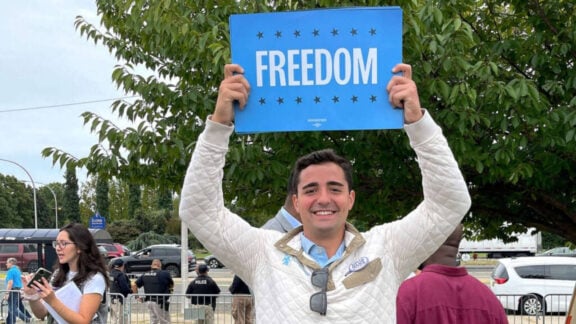Apollo Papadopoulos has been identified as one of four people to have died from Melbourne’s thunderstorm asthma event on Monday.
The 35-year-old is believed to have passed away from an asthma attack after paramedics tried to revive him, reports Fairfax Media.
According to a Facebook post by Dee Kay, a friend of Mr Papadopoulos, paramedics tried to revive him for over 50 minutes.
After his unexpected death was confirmed, people close to Mr Papadopoulos took to social media to pay their respects.
“i cant believe you’re gone. What am I going to do without you. Who else is gunna give me shit and cheer me up at the same time, who else is gunna be there for me the way you always were when i was at my worst and at times when I needed it most. There’s no one like you. Im gunna miss you so much Apollo Papadopoulos. God Bless you. Till we meet again. And just so you know, im gunna have a cigarette now coz I know how much you hate it.. inside too for extra annoyance, love u babe, forever in my heart, RIP my friend, the world is a little bit darker without you xoxox,” wrote Michelle Angela.
Josephine Tzimas said “RIP Apollo Papadopoulos not only did you have one of the coolest names going around but a beautiful smile and sense of humour to always make someone laugh, years went on but the memories have always been there, I hope you forgave me for the makeup on your car seat.. Rest easy mate.”
While Andriana Xanthos expressed a similar sentiment shared by all. “I’m in absolute shock! Can’t believe Apollo has gone from this life. He was a top bloke. Rest in peace buddy. So sad and heartbreaking!! Taken way too young! My condolences to his family.”
Along with Mr Papadopoulos, three others have died; 18-year-old Omar Moujalled, Hope Carnevali, 20, and Clarence Leo.
The phenomenon resulted in 1900 calls to emergency services within five hours and 30 people were admitted to intensive care units.
Following the outbreak, a review into the response of emergency services has been ordered by Health Minister Jill Hennessy. She said the Inspector-General for Emergency Management would look at the demand for help and any improvements that can be made regarding how authorities communicate risks to the community.









